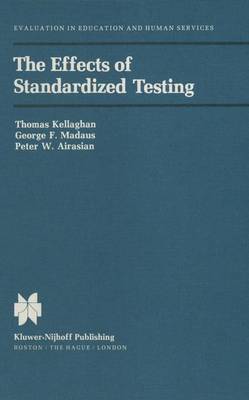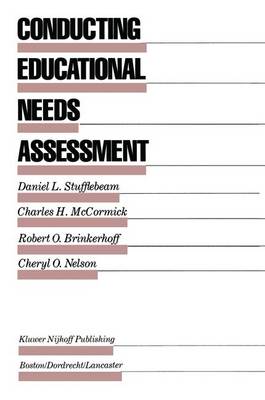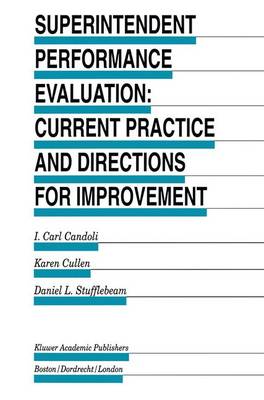Evaluation in Education and Human Services
3 primary works
Book 1
When George Bernard Shaw wrote his play, Pygmalion, he could hardly have foreseen the use of the concept of the self-fulfilling prophecy in debates about standardized testing in schools. Still less could he have foreseen that the validity of the concept would be examined many years later in Irish schools. While the primary purpose of the experimental study reported in this book was not to investigate the Pygmalion effect, it is inconceivable that a study of the effects of standardized testing, conceived in the 1960s and planned and executed in the 1970s, would not have been influenced by thinking about teachers' expectations and the influence of test information on the formation of those expectations. While our study did pay special attention to teacher expectations, its scope was much wider. It was planned and carried out in a much broader framework, one in which we set out to examine the impact of a standardized testing program, not just on teachers, but also on school practices, students, and students' parents.
Book 10
What goals should be addressed by educational programs? What priorities should be assigned to the different goals? What funds should be allocated to each goal? How can quality services be maintained with declining school enrollments and shrinking revenues? What programs could be cut if necessary? The ebb and flow of the student population, the changing needs of our society and the fluctuation of resources constantly impinge on the education system. Educators must deal with students, communities, and social institutions that are dynamic, resulting in changing needs. It is in the context of attempting to be responsive to these changes, and to the many wishes and needs that schools are asked to address, that needs assessment can be useful. Needs assessment is a process that helps one to identify and examine both values and information. It provides direction for making decisions about programs and resources. It can include such relatively objective procedures as the statistical description and analysis of standardized test data and such subjective procedures as public testimony and values clarification activities. Needs assessment can be a part of community relations, facilities planning and consolidation, program development and evaluation, and resource allocation. Needs assessment thus addresses a xiii XIV PREFACE broad array of purposes and requires that many different kinds of procedures be available for gathering and analyzing information. This book was written with this wide variation of practices in mind.
Book 45
Superintendent Performance Evaluation: Current Practice and Directions for Improvement
by I. Carl Candoli, Karen Cullen, and Daniel L. Stufflebeam
Published 30 April 1997
Every school district needs a system of sound superintendent performance evaluation. School district superintendents are and must be accountable to their school boards, communities, faculties, and students for delivering effective educational leadership. To assure that they are evaluated fairly, competently, and functionally, superintendents need to help their school boards plan and implement evaluation systems that adhere to the evaluation standards.
Superintendent Performance Evaluation outlines some of the problems and deficiencies in current evaluation practice and offers professionally-based leads for strengthening or replacing superintendent performance evaluation systems. This book focuses on the on-the-job performance of school district superintendents as they implement school board policy. The decision to focus on performance evaluation reflects the importance of this kind of evaluation in the move to raise educational standards and improve educational accountability. Boards and superintendents are advised to make superintendent performance evaluation an integral part of the district's larger system for evaluating district needs, plans, processes, and accomplishments.
Superintendent Performance Evaluation outlines some of the problems and deficiencies in current evaluation practice and offers professionally-based leads for strengthening or replacing superintendent performance evaluation systems. This book focuses on the on-the-job performance of school district superintendents as they implement school board policy. The decision to focus on performance evaluation reflects the importance of this kind of evaluation in the move to raise educational standards and improve educational accountability. Boards and superintendents are advised to make superintendent performance evaluation an integral part of the district's larger system for evaluating district needs, plans, processes, and accomplishments.


